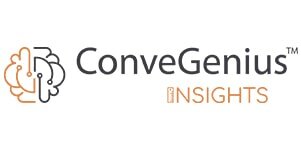Overview
The Michael and Susan Dell Foundation (MSDF) brought in CGI as an independent third-party evaluator to review the impact of selected implementing partners active in the education sector. The funded organizations span a set of interventions with different models of change, including teacher training, school leadership training, remedial programs, education technology, and life skills programs. Each year, CGI conducts baseline, endline, and year on year assessments to determine the relative success of the interventions. Findings from these assessments are critical for MSDF to make decisions about how to invest their funds and improve the performance of implementing organizations, who can adjust interventions based on CGI’s data.
Assessment Snapshot in Year 1
18,000
Students
Assessed
400
Schools
assessed
7+
States in
India covered
The Problem
For impact investors, there are limitless options of organizations that claim to improve education and learning outcomes. Without quality information, investors won’t be able to make the right decisions about where to grant funds.
CGI assessed MSDF’s selected portfolio of implementing partners:
Convegenius (CG), an EdTech company that caters to students in remote areas through tablet-based learning programs
Dream A Dream (DAD), an NGO that runs after-school life skills programs, including arts and sports, to improve student’s school performance
IMAX, a program run by CLASSKLAP that incorporates learning materials for students and teachers, exams, and feedback reports into a single platform to support schools
The Society for All Round Development (SARD), an NGO that runs remedial student programs and teacher support groups for government schools.
Investors understand that interventions require time to make an impact. So CGI assessed these four organization over the course of two to four academic years. CGI’s challenge was to follow the performance of the same students from year to year, tracking their individual growth from class to class.
Outcomes
After conducting assessments, CGI holds dissemination workshops with MSDF and each of the implementing partners. The assessment reports help the client visualise how the students have performed on the scale and balances outcomes against the type of intervention that was implemented and cost per student. This way, CGI and MSDF can approximate cost per unit of learning outcome improvement and MSDF can make informed investment decisions regarding very different intervention types.
Our Approach
MSDF chose CGI as its impact evaluator for the rigour of its statistical methods and the sole focus it has on assessments, unique from other organizations in the sector.
Tracking a student’s educational journey
In order to judge the impact of an intervention on a single group of students that moves through the education system, CGI made use of Item Response Theory (IRT). IRT, an internationally recommended standard in assessment design and analysis, allows CGI’s team to develop a scale that can accurately compare the performance from Grade 1 test to a Grade 10 test. Students assessed by CGI are given a unique identification code in the CG Insights PlatformⓇ database that allows our team to track their test scores and growth up until Grade 10. Because of this scale, MSDF is able to understand the long-term impact of its investments, including the sustainability of impact even after programs have ended.
Adding value from leadership to ground level implementers
CGI not only provides reports and workshops to MSDF leadership but also to partner organisations, teachers and field implementers, who leverage CG insights at each level. During the SARD assessments, for example, our team worked with grassroots facilitators on how to meet gaps in critical thinking and reading demonstrated by the students. When most students incorrectly answer questions related to a particular skill, like identifying patterns in numbers, our assessment team passes that information on to teachers, who can focus on filling those gaps.
A universal metric for diverse intervention styles
MSDF’s implementing partners work with teachers and students, through classroom and after-school activities, on tech-based and analogue teaching solutions. With a rich diversity of investments, it can become difficult for investors to compare results across different partners. CGI’s learning outcomes metrics allow MSDF and other clients to measure the results of very different programs on the same terms, without oversimplifying the range of interventions.
“CGI’s assessments have been taken up by MSDF’s leadership team to make a number of important decisions about investments in impact. Our ability to measure accurately, rigorously, reliably, has been greatly appreciated by the MSDF team and their partners that we work with.”
Rely on our assessments to make better decisions with data.
We work with a wide range of clients including funders, social responsibility arms of corporates, non-profits as well as government and private schools.


